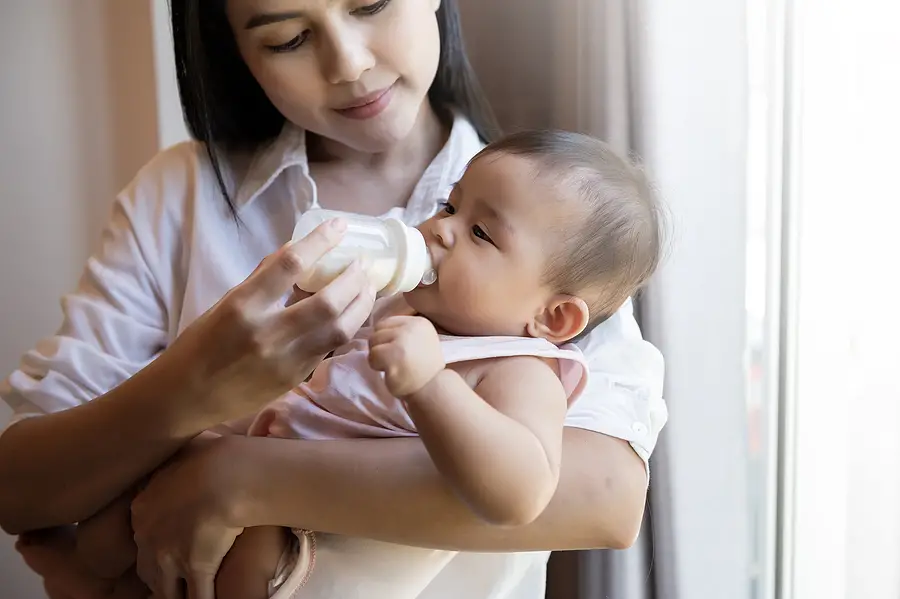
How to Prevent Baby Bottle Tooth Decay
As parents, we always strive to give our little ones the best care possible. However, sometimes we tend to overlook one important aspect of their health - their teeth! Baby Bottle Tooth Decay is a common concern among parents that can lead to painful and costly dental problems in the future. In this blog post, we will discuss what it is, its symptoms, and, most importantly, how you can prevent it from happening to your baby's precious smile. So let's dive right into it!
What is Baby Bottle Tooth Decay?
Baby Bottle Tooth Decay, also known as early childhood caries, is a dental condition that affects infants and young children. It occurs when their teeth are frequently exposed to sugary liquids such as milk, formula, or fruit juice for extended periods.
When these liquids cling to the child's teeth and gums for long durations, it creates an environment conducive to bacterial growth. This can lead to plaque formation that attacks the enamel layer of baby teeth.
Over time, this decay can cause cavities in baby teeth leading to toothaches and infections. If left unchecked, it could even affect permanent adult teeth later on.
The most common locations where Baby Bottle Tooth Decay occurs include the upper front teeth and molars at the back of the mouth. Since these areas are harder to reach with a toothbrush or tongue-cleaning mechanism, they become more susceptible to decay.
It's important for parents to know that Baby Bottle Tooth Decay is preventable with proper care techniques! Contact us to learn more.
Symptoms of Baby Bottle Tooth Decay
Baby bottle tooth decay may not always show obvious symptoms during the early stages. However, as the condition progresses, some of the most common symptoms to look out for include the following
1. Discoloration and staining of teeth - this can range from yellowish/brownish spots to dark holes on the surface of your child's teeth.
2. Sensitivity - if your child complains about pain or discomfort when eating hot or cold foods, it could be a sign that their teeth are decaying.
3. Bad breath - bacteria buildup in the mouth due to food particles stuck between teeth and gums can lead to bad breath.
4. Swollen and bleeding gums- inflamed or swollen gums around baby teeth is another indication that there might be an issue with tooth decay
5. Irritability – If you notice that your child has become more irritable than normal lately, they may have oral health issues causing them discomfort.
If you suspect that your child may have any of these symptoms associated with baby bottle tooth decay, it is important to schedule a dental checkup immediately for proper diagnosis and treatment options before things get worse!
How to Prevent Baby Bottle Tooth Decay
Preventing baby bottle tooth decay is essential to children's dentistry to ensure that your child develops healthy teeth and gums. Here are some tips to help you prevent it:
1. Avoid sugary drinks or foods before bedtime.
2. Do not let your child fall asleep with a bottle in their mouth.
3. Clean your baby's gums and teeth after each feeding with a clean, damp cloth.
4. Begin brushing your child's teeth as soon as they emerge using fluoride toothpaste under the guidance of a pediatrician or dentist in Mt Pleasant, TX.
5. Encourage a balanced diet rich in calcium, phosphorus, and Vitamin D.
By taking these steps to prevent baby bottle tooth decay, you can help keep your little one's smile healthy for years to come! Remember that regular dental checkups are also important for monitoring oral health progress and catching any potential issues early on.
Mt. Pleasant Family Dental, located in Mt Pleasant, TX, is equipped with the best dentists and modern amenities that enable the best dental care facilities for patients. Call us at (903) 345-6065 and schedule an appointment with the dentist to learn more about dental treatments provided at the dental practice.













0 comments